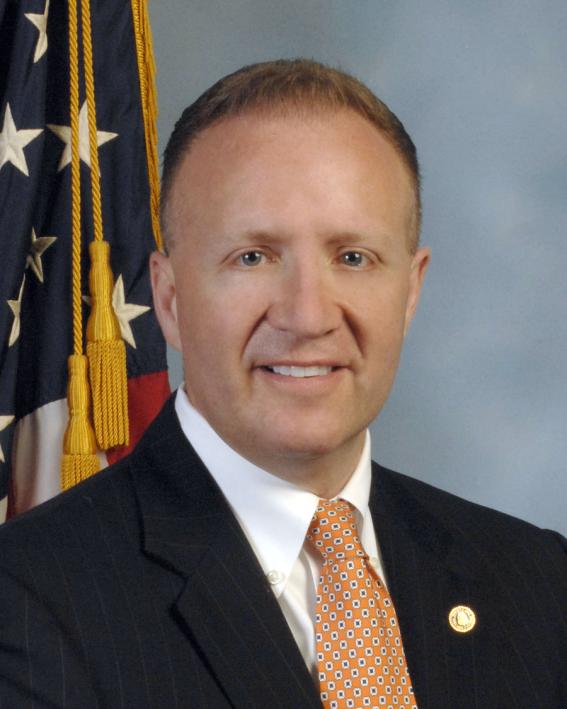Accounting Alumnus of the Year Exemplifies the Profession's Reach
March 16, 2018

Forensic accounting, Jeff notes, confers valuable tools for identifying financial discrepancies and patterns of financial transactions. With accounting training, he adds, you gain automatic, intuitive radar in those areas. More fundamentally, though, “Accounting is logic, not numbers,” he emphasizes. It makes sense of numbers, but ultimately via logical reasoning and problem solving.
“In auditing,” adds Jeff, “you also learn how to talk to people. Interviewing and communicating are among the most valuable skills in my work. Ultimately, a forensic accountant is a fact finder.” FBI agents, he notes, conduct interviews in pairs to compare responses and capture different perspectives. “Talking to people is an innate skill. But you can do a lot to improve.” Every accounting program, he underscores, should emphasize communication skills. “They are critical in auditing, forensic accounting, and tax.”
Each year, Jeff shares career insights with scores of students in Isenberg’s introductory accounting course. “You will always be employable and not just in public accounting,” he tells them. Among his 50 peers who joined Ernst & Young when he graduated from Isenberg in 1993, only two made partner. Many others, he remarks, did “exceptional things”—in public accounting, industry, and public service.
Pulse-Raising Career Highlights
Extraordinary challenges and geographical mobility have been key elements in Jeff’s FBI career. Before Chicago, he ran the Bureau’s New Orleans Division for two years, focusing on entrenched public corruption and violence in the Big Easy and all of Louisiana. Before that, at FBI headquarters, he was in charge of the nation’s Public Corruption and Civil Rights Section of the Bureau’s Criminal Investigative Division. His responsibilities in that role also included investigative oversight over international human rights, the Foreign Corrupt Practices Act (FCPA), antitrust activities, international money laundering, and financing of threats to U.S. national security.
Under Jeff’s leadership, the FBI rolled out separate squads that augmented FCPA, kleptocracy, and antitrust investigations. One notable FBI coup: the largest anti-kleptocracy initiative in history—the 1MBD Case—where high-level fund officials and their associates misappropriated over $1 billion in assets from a Malaysian sovereign wealth fund, the 1Malaysia Development Berhad. Why the emphasis on international finance? “Like many of us, criminals are active participants in the global economy,” he remarks.
Before that, as Assistant Special Agent in Charge of the FBI’s Boston Division, Jeff tackled white-collar crime, public corruption, healthcare fraud, civil rights, counterterrorism, and crisis management. In Boston, he led the coordinated law enforcement response to the 2013 Boston Marathon bombings.
“There is no typical career path for an FBI agent,” Jeff insists. “Agents have to be mobile. My bottom line is: How can I make a greater impact in translating my leadership style to operations?” Earlier on, Sallet ran the FBI’s Providence Division for five years, was a supervisor at FBI headquarters for two, and began at the Bureau by combatting organized crime in the FBI’s New York Division. The latter
included his high-profile bust with fellow FBI agent Kimberly McCaffrey (also a forensic accountant) of Bonnano crime family boss Joeseph Massino, a.k.a., The Last Don. Combining traditional investigative and forensic accounting techniques, the bust was grist for the book, King of the Godfathers, by Anthony DeStefano, who described Sallet as “a die-hard Red Sox fan” and “an accountant, but no nerd.”“Accounting is about the integrity of numbers.”
As Senior Supervisory Resident Agent with the FBI’s Division in Providence, Jeff focused on public corruption, organized crime, and terrorism. In that venue, a Sallet-led investigation dealt Rhode Island’s La Cosa Nostra severe blows, highlighted by the conviction of New England crime boss Luigi “Baby Shanks” Manocchio on racketeering charges.
Early Career Leverage from Isenberg
“I wanted to be an FBI agent from the beginning,” Jeff confesses. “Among other things, my accounting degree was a means to an end, a differentiator. When I joined the FBI, I was one of approximately 90,000 people who applied for about 1,000 slots. After graduating from Isenberg, I spent three years at Ernst & Young as an auditor in financial services and then almost a year at Arthur Andersen as a forensic accountant with its Business Fraud and Risk Services Group.”
Whether you are tackling traditional or forensic accounting challenges, “accounting is about the integrity of numbers,” Jeff emphasizes. And if you are single-minded and persistent enough to bring your accounting skills to a public service icon like the FBI, you will surely embrace additional inspiration from Jeff: “Every day is a new day with new problems and puzzles to be solved.”